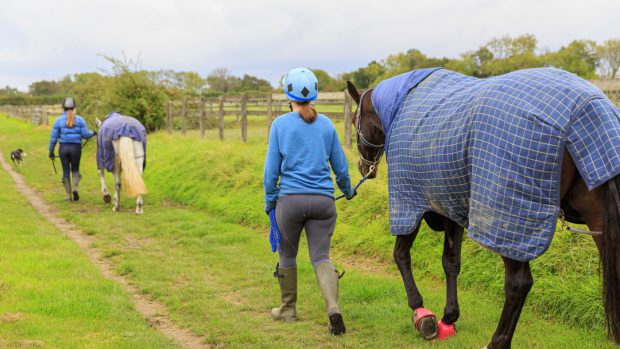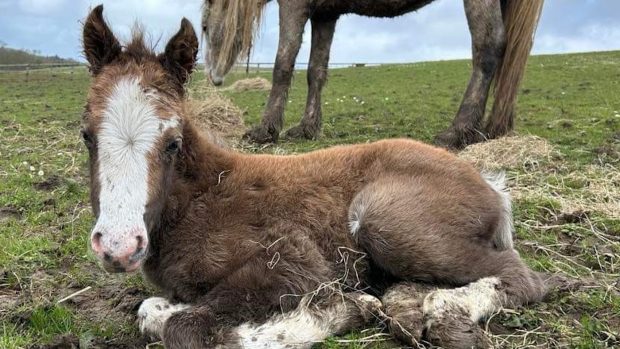Government “reluctance” to provide adequate resources means England does not have enough officers to effectively enforce animal welfare legislation.
The claim comes in a new cross-party Parliamentary group report into the effectiveness of animal welfare enforcement, which calls for an end to the “postcode lottery” across the country.
The group is concerned that cost-of-living pressures “could lead to the suffering of countless animals” if action is not taken.
“This landmark report suggests there’s a real postcode lottery in terms of animal welfare enforcement services across England – with nearly half having no dedicated officers,” said group co-chair Giles Watling MP, adding that much can be done to improve collaboration.
“We are in the midst of a cost-of-living crisis – and that could have big consequences for animals and enforcement bodies trying to protect them.”
The report warns that there has been a “real lack of consistency” in enforcement; 47% of councils in England have no dedicated animal welfare officers. For the 53% that do, it is unclear whether most of their time is spent on enforcing or ensuring compliance with animal welfare legislation, and some may be focused on farm animals or dogs only.
The report states that although there are statutory requirements under the Animal Health Act 1981, there is a “lack of clear and adequate provision to actually enforce broader animal welfare legislation”.
“This is likely to have been because of a reluctance of the Government to provide the additional resources required at the time as post-2006 – when the Animal Welfare Act was created – we saw the beginning of cuts to local government budgets,” it states.
“Owing to this, local authorities have approached the issue of animal welfare in different ways and subsequently we have huge inconsistency between geographical areas.”
It adds that the likelihood of action on animal welfare issues “depends on too many variables including the attitude and resources of the body in question”.
It notes there are some examples of good practice, but “many examples of very poor practice” where no welfare work is undertaken, or if it is, it is mainly in relation to licensing and is “of poor quality”.
“This has not only been negative for animal welfare, it has had a negative impact on pet businesses when it comes to animal activity licensing,” it adds.
The report also points to the wider picture, highlighting that “animal abuse or neglect does not exist in isolation”. It can be linked to social issues, such as domestic and child abuse, trafficking or modern slavery, financial exploitation and personal issues like poor mental health, which is why it is “increasingly important” these are tackled collectively.
This is not the first damning report into this legislation and how it is enforced. H&H reported on a review into the effectiveness of the Animal Welfare Act 2006 by an Environment Food and Rural Affairs Committee in 2016 (news, 24 November 2016). In 2021, 50 welfare charities created a report, featuring 40 recommendations, including the Government ensures that enforcement is a statutory obligation in any new laws. “Legislation is a glorified and costly piece of paper without enforcement, and a wasted piece of paper if it doesn’t deliver its objectives”, it said (news, 20 May 2021).
It begs the question of what makes this research different.
The group responsible for this new report said it has sought to avoid duplicating work and seeks to focus its limited resources on solutions.
It states that there are four key barriers: limited resources, inconsistency, lack of training/experience and lack of knowledge-sharing. What is needed is: experienced and capable inspectors, shared knowledge and resources, ongoing, quality training, and addressing issues around seizure of animals.
It urges the Government to consider a “level of funding” that would help local authorities organise shared services, undergo training and crack down on the “really serious offences that are often national level and linked to organised crime”.
It called for authorities to be required to have access to dedicated animal welfare officers, to enforce the law, and for regional animal welfare forums, led by the dedicated officers, and a national animal welfare board.
The group also wants a central fund to be considered, which could be used to target large-scale animal welfare breaches.
Roly Owers, chief executive of World Horse Welfare which assisted with the report, alongside RSPCA and the Local Government Animal Welfare Group, stressed the need for collaboration.
“Although there’s still a way to go, real progress is being made with improving legislation around animal welfare and its impact on horses, but it will be wasted if not enforced,” he said.
“To be effective, enforcement needs a major rethink and will require both well-trained, dedicated, officers who could be shared across local authority boundaries to limit the costs, and welfare charities to provide the necessary training and support.
“Only with a collaborative approach will we see real, tangible benefits for animal welfare.”
A Defra spokesperson told H&H: “The UK has amongst the highest standards of animal welfare in the world, and along with local councils, our [Animal Plant and Health Agency] inspectors ensure animal health and welfare standards are being met and appropriate action is taken against anyone who breaks the law.
“All animals, whichever system they are kept in, are protected by comprehensive and robust animal health, welfare and environmental legislation – and we are currently developing an animal health and welfare pathway, which will further promote the production of healthier, higher welfare animals.”
You might also be interested in:

Subscribe to Horse & Hound this spring for great savings

Charities unite to urge Government to act on welfare — but concerns about Hunting Act point *H&H Plus*

Damning report into animal welfare legislation published
"It is unacceptable that in a modern society no state organisation is responsible for animal welfare"
Horse & Hound magazine, out every Thursday, is packed with all the latest news and reports, as well as interviews, specials, nostalgia, vet and training advice. Find how you can enjoy the magazine delivered to your door every week, plus options to upgrade your subscription to access our online service that brings you breaking news and reports as well as other benefits.





